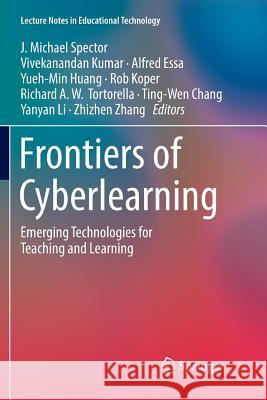Frontiers of Cyberlearning: Emerging Technologies for Teaching and Learning » książka
topmenu
Frontiers of Cyberlearning: Emerging Technologies for Teaching and Learning
ISBN-13: 9789811344718 / Angielski / Miękka / 2019 / 246 str.
Kategorie:
Kategorie BISAC:
Wydawca:
Springer
Seria wydawnicza:
Język:
Angielski
ISBN-13:
9789811344718
Rok wydania:
2019
Dostępne języki:
Numer serii:
000468790
Ilość stron:
246
Waga:
0.36 kg
Wymiary:
23.39 x 15.6 x 1.35
Oprawa:
Miękka
Dodatkowe informacje:
Wydanie ilustrowane











